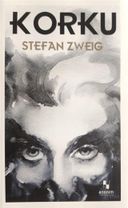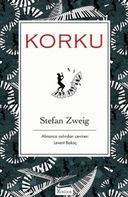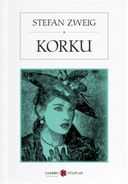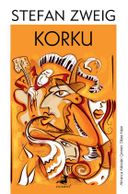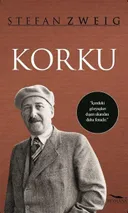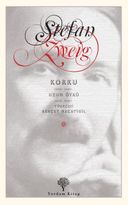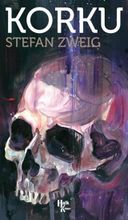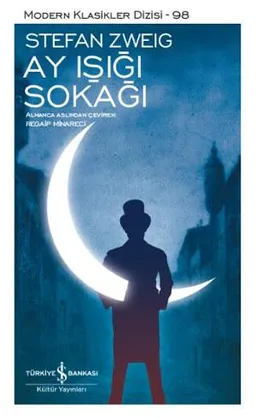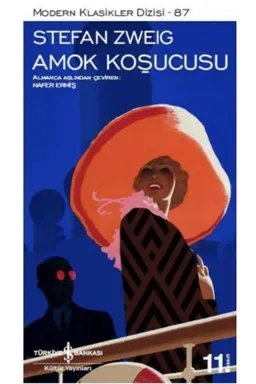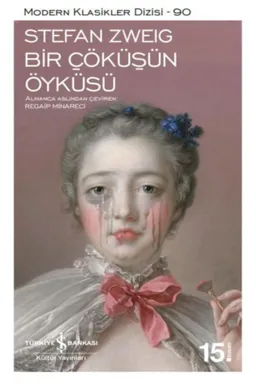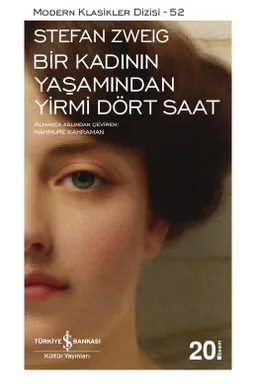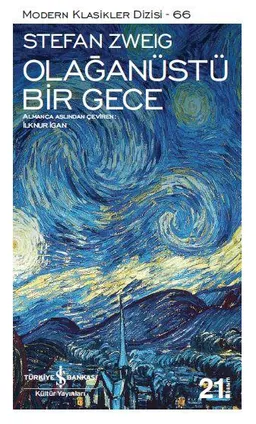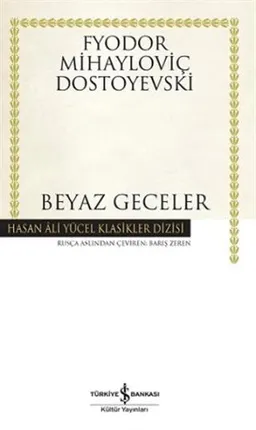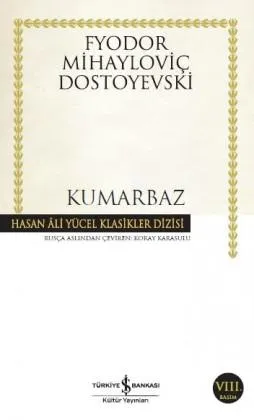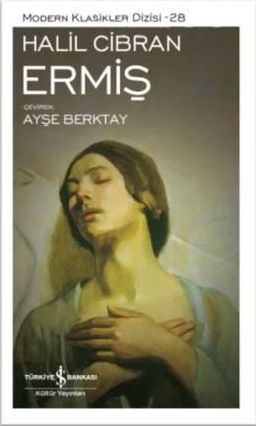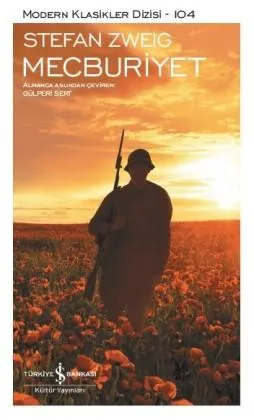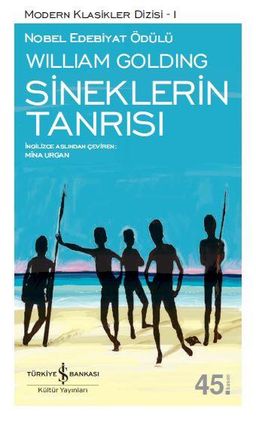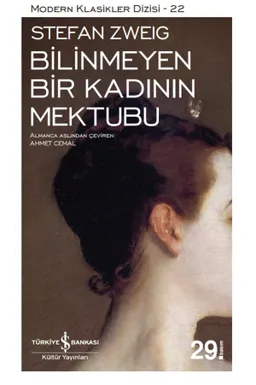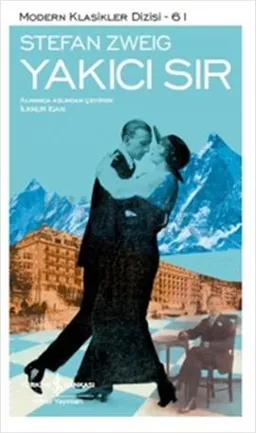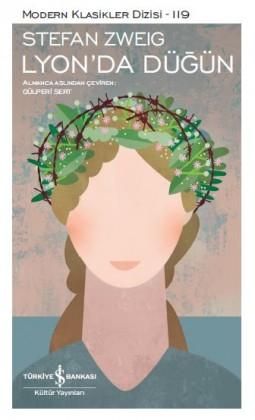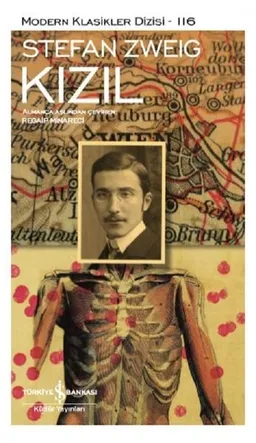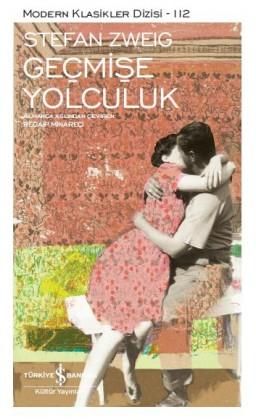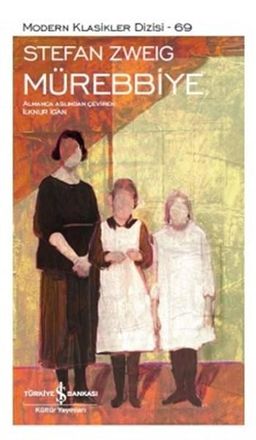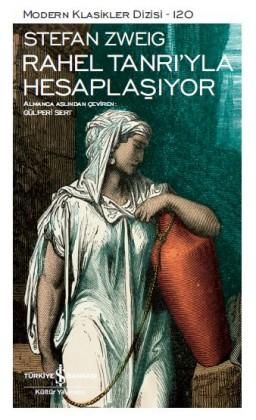Korku
Stefan ZweigAbout Korku
Korku subject, statistics, prices and more here.About
Korku, cezadan daha berbattır çünkü ceza bellidir. İster ağır, ister hafif olsun.
Evli bir kadın olan Irene, ünlü bir piyanist olan genç adamı bir akşam etkinliğinde tanımış, o günden sonra da öyle çok fazla istek duymadan, hatta farkına bile varmadan adamın metresi olmuştu. Ne evliliğindeki mutluluğu ne de kadınlarda çok görülen, manevi ilişkilerin getirdiği o yorgunluk onu kendine bir âşık edinmeye itmişti. Kültürel açıdan kendinden üstün zengin bir koca ve iki çocuğunun yanında gayet mutluydu. Kendi uyuşuk ritminde giden rahat, sakin, mutlu bir hayatı vardı. Fakat havada nasıl boğuculuk veya fırtına gibi insanı tahrik eden bir durgunluk varsa, mutluluğun da aynı şekilde insanı felaketlerden daha çok ayartan bir yumuşaklığı vardır. Söz konusu tahrik olunca toklukla açlık birdir. Zaten Irene’de maceraya karşı merak uyandıran şey de hayatının tehlikesizliği ve eminliği oldu. Gelen bir şantaj mektubuyla her şey tersine dönecek ve onun tüm düzenini altüst eden bir korkuyu açığa çıkaracaktır.
Author: Stefan Zweig
Translator: Zeynep Yeşiltuna
#35 En iyi kitaplarda#26 En çok okunan kitaplarda#17 Dünya Klasikleri türünde#24 Edebiyat türünde#7 Hikaye (Öykü) türünde
Estimated Reading Time: 2 hrs. 16 min.Page Number: 80Publication Date: November 2018First Publication Date: 1910Publisher: Martı YayınlarıISBN: 9786051868509Country: TürkiyeLanguage: TürkçeFormat: Karton kapak
Other Editions
Korku
81.6k okunmaTürkiye İş Bankası Yayınları · January 2022 · 70 syf
Korku
5.3k okunmaParodi Yayınları · 2018 · 104 syf
Korku
3,465 okunmaİndigo Yayınları · February 2018 · 96 syf
Korku
2,422 okunmaAnonim Yayıncılık · May 2020 · 112 syf
Korku
1,651 okunmaKoridor Yayıncılık · 3 March 2020 · 88 syf
Korku
1,547 okunmaPanama Yayıncılık · 2017 · 120 syf
Korku
970 okunmaVenedik Yayınları · 10 June 2019 · 112 syf
Korku
580 okunmaPuslu Yayıncılık · November 2018 · 0 syf
Korku
563 okunmaKarbon Kitaplar · 4 January 2018 · 69 syf
Korku
414 okunmaOlimpos Yayınları · 16 July 2019 · 96 syf
Korku
365 okunmaKızıl Panda · January 2021 · 80 syf
Korku
359 okunmaRomans Yayınları · May 2019 · 80 syf
Korku
311 okunmaYordam Kitap · October 2017 · 80 syf
Korku
303 okunmaHalk Kitabevi Yayınları · November 2020 · 112 syf
Korku
284 okunmaOscar Yayınları · 2020 · 96 syf
Book Statistics
All statistics
Statistics of this edition
Reader Profile of the Book
Kadın% 77.7
Erkek% 22.3
0-12 Yaş
13-17 Yaş
18-24 Yaş
25-34 Yaş
35-44 Yaş
45-54 Yaş
55-64 Yaş
65+ Yaş
About the Author
Stefan ZweigYazar · 187 books
This text has been automatically translated from Turkish. Show Original
Stefan Zweig, whose father was a wealthy industrialist, began to study culture and literature from an early age. He learned English, French, Italian, Latin and Greek. He studied philosophy at the universities of Vienna and Berlin. He wrote his first poems in high school, under the influence of Hugo von Hofmannsthal and Rainer Maria Rilke's works. After 1901, he translated the poems of Paul Verlaine and Baudelaire, who wrote in French, into German. Between 1907 and 1909 he traveled to Ceylon, Gwaliar, Calcutta, Benores, Rangun and Northern India, followed by a trip to America in 1911, covering New York, Canada, Panama, Cuba and Puerto Rico. In 1914, he went to Belgium to live with Émile Verhaeren.
During World War I (1914-1917), he volunteered as a civil servant in the "War Archive" at the war headquarters in Vienna. After the war, he returned to Austria and settled in Salzburg. In 1920, he married Frederike Von Winternit. Stefan Zweig lived in Salzburg for about 20 years. The years he spent in his villa on the slopes of Kapuzinerberg were Zweig's most productive years. He bought the villa at number 5, Kapuziner hill, during the years he was married to Friderike. The years he spent in Salzburg took Zweig to the top in literature, and he wrote his most beautiful works in the two-storey villa hidden among the trees overlooking the city and Salzach. He quickly made friends with famous people and frequently hosted them in Salzburg. Romain Rolland, Thomas Mann, H.G. Wells, Hugo von Hofmannstahl, James Joyce, Franz Werfel, Paul Valery, Arthur Schnitzler, Ravel, Toscanini and Richard Strauss were Zweig's guests. During his years in Salzburg, Zweig put his weight behind the intellectual unity of Europe; he warned against excesses in his articles and lectures; He called for wisdom and patience in diplomatic circles. In 1927, he wrote "Confusion of Emotions" and "Moments When the Star Shines" in Munich, Germany. and "Historical Head Miniature" His books titled "Farewell to Rilke" were published on February 20, 1927. He gave his speech titled: In 1928, he went to the Soviet Union to attend the 100th Birth Anniversary Celebrations of Leo Tolstoy. In 1933, among the books that the Nazis began burning were the works of Zweig, who was of Jewish origin. In 1934, when the Gestapo raided his villa and searched for weapons, Zweig had to leave his country and settled in London, England. However, he did not feel comfortable here and moved out.
Zweig separated from his first wife, Frederike, in 1937, and a year later he went to Portugal with a woman named Lotte Altman. At that time, Austria had joined the German Reich, and Zweig applied for British citizenship. "Impatience of the Heart" in 1939 His novel was published and Zweig married Lotte Altman, with whom he went on a trip to Portugal. He became a British subject in 1940, during World War II. During World War II he traveled to New York, Argentina, Paraguay and Brazil. Zweig decided to settle in Brazil, where he went for conferences. There he wrote the famous "A Chess Story". Stefan Zweig began working on Montaigne in 1941 and published "Yesterday's World - European Memories". He wrote his autobiography. "Yesterday's World" The book is a tribute to the old days by an author who lived his youth in the early 1900s, when he realized that the world he lived in would never be the same.
He committed suicide with his wife Lotte in Rio de Janeiro on February 22, 1942, due to his sadness at the situation in Europe and the disappointments in his life. This was caused by Hitler's pessimism that he thought the world order was permanent, as well as the thought that his own world would never exist again.
Zweig, a productive writer, experimented on many subjects. He wrote lyric poems, tried stage works in the genre of tragedy and drama, and produced important works, especially in the field of biography. His interest in Freud and psychology led him to this field. His work in the field of biography revealed the lives of many famous people of the period. Three Great Masters: Balzac, Dickens, Dostoyevsky; Those Fighting the Demon Within Oneself: Hölderlin, Kleist, Nietzsche; Romain Rolland; Marie Antoinette; The works of Magellan, Stendhal, Erasmus and Fouche are a few of these biographies.
Books
Bilinmeyen Bir Kadının Mektubu
7.9/10
Satranç
8.3/10
Amok Koşucusu
7.8/10
Olağanüstü Bir Gece
7.5/10
Bir Kadının Yaşamından Yirmi D...
7.6/10
Korku
8.2/10
Bir Çöküşün Öyküsü
7.5/10
Ay Işığı Sokağı
7.3/10
Mecburiyet
8/10
Yakıcı Sır
7.9/10
Lyon'da Düğün
7.4/10
Kızıl
7.5/10
Geçmişe Yolculuk
7.3/10
Mürebbiye
7.2/10
Rahel Tanrı’yla Hesaplaşıyor
8.1/10



